Related Research Articles

Mohamed Salah al-Din Zaidan commonly known by his nom de guerreSaif al-Adel is an Egyptian former special forces officer and explosives expert who is widely understood to be the de facto leader of al-Qaeda. Once a colonel in Egypt's El-Sa'ka Force commandos expelled for his suspected Salafi jihadist allegiances, al-Adel fought the Soviets as an Afghan Arab before becoming a founding member of the al-Qaeda organization. He is currently known to live in Iran along with several other senior members of the group.

Fazul Abdullah Mohammed was a Comorian-Kenyan member of al-Qaeda, and the leader of its presence in East Africa. Mohammed was born in Moroni, Comoros Islands and had Kenyan as well as Comorian citizenship. He spoke French, Swahili, Arabic, English, and Comorian.

Abdullah Ahmed Abdullah was a high-ranking Egyptian member of al-Qaeda. He has been described as al-Qaeda's most experienced operational planner and was said to be the second-in-command in the organization at the time of his death.
Midhat Mursi al-Sayid Umar, also known as Abu Khabab al-Masri was a chemist and alleged top bomb maker for al-Qaeda and part of Osama bin Laden's inner circle. The United States had a $5 million bounty on his head. Although reportedly killed in a U.S. attack in January 2006, he survived and intelligence officials believe he went on to attempt to resurrect al-Qaeda's program to develop or obtain weapons of mass destruction. On 28 July 2008, Mursi was killed in an American drone attack in South Waziristan, Pakistan.
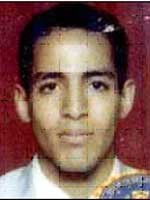
Saleh Ali Saleh Nabhan was the leader of al-Qaeda in Somalia. He was listed on the FBI's third major "wanted" list, the FBI Seeking Information – War on Terrorism list, for his association with multiple attacks in Kenya in 2002, as well as his possible involvement in the 1998 United States embassy bombings, in which over 250 people lost their lives.
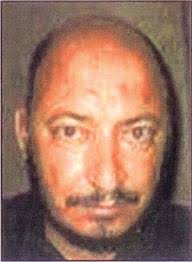
Hamid Dawud Mohamed Khalil al-Zawi, known as Abu Hamza al-Baghdadi and Abu Omar al-Qurashi al-Baghdadi, was the leader of the militant groups Mujahideen Shura Council, and its successor, the Islamic State of Iraq, which fought against US forces and their Iraqi allies in the Iraq War.
American counter-terrorism analysts justified the continued extrajudicial detention of many Guantanamo captives because they were suspected of staying in al-Qaeda safe houses, or guest houses—or because names matching theirs, or their "known alias" were found in the suspect houses.
Aden Hashi Farah Aero was the military commander of the Al Shabaab. He was from the Ayr sub-clan, part of the Habar Gidir, which is a branch of the Hawiye clan. He was reportedly married to Halima Abdi Issa Yusuf. He was among several militants killed in a U.S. airstrike on 1 May 2008.

Operation Enduring Freedom – Horn of Africa (OEF-HOA) is a component of Operation Enduring Freedom (OEF). The Combined Joint Task Force – Horn of Africa (CJTF-HOA) is the primary military component assigned to accomplish the objectives of the mission. The naval components are the multinational Combined Task Force 150 (CTF-150) and Combined Task Force 151 (CTF-151) which operates under the direction of the United States Fifth Fleet. Both of these organizations have been historically part of United States Central Command. In February 2007, United States President George W. Bush announced the establishment of the United States Africa Command which took over all of the area of operations of CJTF-HOA in October 2008.
Mustafa Ahmed Muhammad Uthman Abu al-Yazid, better known as Saeed al-Masri or simply al-Masri, was an Egyptian who was alleged to have acted as the financial chief for al-Qaeda. Along with Mahfouz Ould al-Walid and Saif al-Adel, al-Masri was believed to have opposed the September 11 attacks two months prior to their execution. He was killed in a targeted killing drone airstrike in Pakistan on May 21, 2010.

Abu Yahya al-Libi, born Mohamed Hassan Qaid, was a terrorist and leading high-ranking official within al-Qaeda, and an alleged member of the Libyan Islamic Fighting Group.
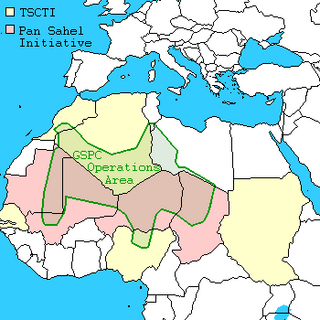
Al-Qaeda has conducted operations and recruited members in Africa. It has included a number of bombing attacks in North Africa and supporting parties in civil wars in Eritrea and Somalia. From 1991 to 1996, Osama bin Laden and other al-Qaeda leaders were based in Sudan.

It is believed that members of Al-Qaeda are hiding along the border of Afghanistan and northwest sections of Pakistan. In Iraq, elements loosely associated with al-Qaeda, in the Jama'at al-Tawhid wal-Jihad organization commanded by Abu Musab al-Zarqawi, have played a key role in the War in Iraq.

Ahmed Abdi Godane, also known as Mukhtar Abu Zubair, was the Emir (leader) of Al-Shabaab, an Islamist group based in Somalia with ties to Al Qaeda. Godane, who received training and fought in Afghanistan, was designated by the United States as a terrorist. The exact date of Godane's rise to al-Shabaab's Emir is debated, although it seems he ascended to this position in December 2007. He was killed in a U.S. drone strike on 1 September 2014 in southern Somalia.
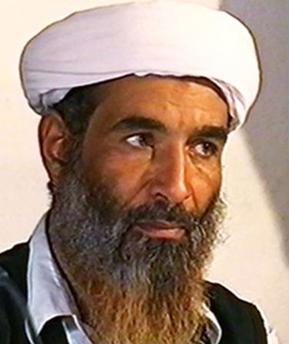
Mohammed Atef was the prominent military chief of al-Qaeda, and a deputy of Osama bin Laden, although Atef's role in the organization was not well known by intelligence agencies for years. He was killed in a US airstrike in November 2001.

Samir Hijazi, known as Abu Humam al-Shami or Faruq al-Suri, is a Syrian militant and soldier who was the military chief of al-Qaeda's Syrian affiliate al-Nusra Front. He became the head of the Guardians of Religion Organization in February 2018, though he was replaced by Khalid al-Aruri.
Abdullah Abd al-Rahman Muhammad Rajab Abd al-Rahman, known as Ahmad Hasan Abu al-Khayr al-Masri, was an Egyptian al-Qaeda leader who has been described as the general deputy to al-Qaeda leader Ayman al-Zawahiri.
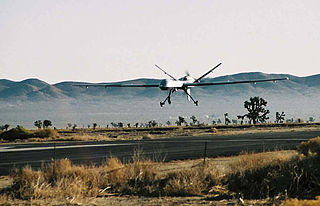
Since the late 2000s, the United States has supported the Federal Government of Somalia in its counterterrorism campaigns following the September 11th attacks. The Obama administration and the Trump administration increased their support of the Somali government mostly through strikes by drone and fighter aircraft, advisory missions, training, and the provision of intelligence to target the al-Shabaab militants. Two U.S. special operations personnel, two contractors, one US Army soldier, and a CIA paramilitary officer have died during operations in Somalia.
Abu Muhsin al-Masri was an Egyptian militant and a high-ranking member of al-Qaeda.
References
- ↑ Downing, Wayne A. (2009). Al-Qa-ida-s (Mis)Adventures in the Horn of Africa. DIANE Publishing Company. p. 131. ISBN 9781437918298.
- ↑ Hegghammer, Thomas (February 2008). "Deconstructing the Myth about Al- Qaida and Khobar" (PDF). CTC Sentinel. Combating Terrorism Center at West Point. 1 (3): 20–25.[ permanent dead link ]
- ↑ DeYoung, Karen (2007-01-08). "U.S. Strike in Somalia Targets Al-Qaeda Figure". Washington Post. Retrieved 2007-01-08.
- ↑ "VOA News - Somali Fighting Continues, Despite Diplomatic Effort". Archived from the original on 2007-01-12. Retrieved 2007-07-25.
- ↑ The Independent, January 13, 2007, "US strikes on al-Qa'ida chiefs kill nomads - Independent Online Edition > Africa". Archived from the original on 2007-10-18. Retrieved 2007-10-04.
- ↑ "Somalia strike misses top al Qaeda suspects". Reuters. 2007-01-21. Retrieved 2023-11-06.
- ↑ "Somalia on the Edge". TIME. 2007-11-29. Archived from the original on 2007-12-03. Retrieved 2023-11-06.
- ↑ "Shabaab reaches out to al Qaeda senior leaders, announces death al Sudani | FDD's Long War Journal". 2 September 2008.